#not physically. at least i don't think so. i might take a covid test but i think it's just the schizophrenia
Explore tagged Tumblr posts
Text
i'm sick
#the adas speak#not physically. at least i don't think so. i might take a covid test but i think it's just the schizophrenia#i'm so fatigued. not just in the sleepy way. it's not like when i had(hallucinated?) physical fatigue#but i'm just bone tired. with no motivation. urgh#i can't think. it's hard and bad. it's like burnout but idk if i'm burnt out or just schizophrenic. or both#they're trying to get it reclassified as a neurological disorder or brain disease instead of a mental illness#which is partly a research funding thing. but it also feels really accurate#i understand why i thought it was a chronic illness. although i still don't know what's hallucinations and what isn't
1 note
·
View note
Text
not to be a boomer, but I do worry about the current generation of kids being raised with iPads.
first off. some of them literally can't hold a pencil because their parents never gave them physical toys to grip and play with, developing their fine motor skills.
you might ask why do we even need to learn how to write physically anymore- well, frankly, because if you're stranded on an island somewhere and you need to write HELP, you might not have the strength to hold a pencil, but you can at least hold a stick.
but on a more general note.
writing by hand helps you remember things better. it forces you to focus in a way that typing something word for word does not. a person can transcribe what a professor says without even thinking about it.
someone writing notes has to consider what to write and what to omit. it also activates more parts of your brain, forcing you to flex the parts of your brain related to learning and communicating, while also engaging the part of your brain dedicated to muscle control and precision.
but in general, I think the issue isn't even oh technology is bad and kids are getting dumber.
you can have PowerPoints AND take physical notes. that could help you learn even better than the olden days where you just had to remember everything that was thrown at you. or read very limited, out of date books.
the problem is that the generation that raised/is raising this generation of children just doesn't understand the true impact that all this technology will have on their kids. or they just don't care.
because our generation had the internet yes, but it wasn't widely accessible for most of us, sharing our computers with the entire family in the kitchen. it was also the internet in its infancy, where it wasn't quite so predatory, when it was lawless and disturbing, yes, but it wasn't weaponized by corporations trying to sell you things and steal your data, it wasn't flooded with bots and ai and all sorts of things that the human brain can't even distinguish as real or fake, especially when you're just a little kid.
that generation still played with physical toys. we celebrated when it snowed and we could stay home.
we also came from a gen that still, vaguely, cared about some form of community and had third spaces for kids to hang out.
90s children, who still had some memories of both playing outside on a playground and playing Mario Kart on the Nintendo 64 with their friends, who both went out to the mall and had a club penguin account.
we grew up with laptops and smart boards. maybe some of us had them in high school or college, but we still physically went to class and developed relationships. learned uncomfortable things about ourselves and others, the way humans do.
met new people and were exposed to new ideas, away from our parents. but not from some fucking influencer trying to sell us Sephora products.
we had to study for things, instead of just being able to Google shit for some bullshit online test.
which is also something that really concerns me. so many kids today can so easily Google answers for every test, and while tests don't ultimately matter in the real world, they still provide some basis for things that do matter.
like I'm just imagining medical students googling how to perform an appendectomy on the day of, and just using a YouTube tutorial to guide them through, and shuddering.
there are some things that the Internet can't teach you.
there always will be.
but I don't think my generation is really helping their kids find the balance that we were given naturally growing up.
the boomers and gen xers had fist fights and we had bullying someone online until they committed suicide.
and now kids use AI to spread fake nudes of girls.
but the laws haven't caught up with a lot of this stuff yet, and certainly won't while we have dinosaurs running our government. and culture takes even longer to change than laws.
I also worry because I know how badly covid affected kids worldwide. how they struggle to read and do math, because remote learning just isn't good for kids.
and I can't even blame them!! I literally teleworked for 4 years and even I can admit that I'm not nearly as good at focusing at home as I am in the office.
it's hard for kids with social anxiety and disabilities, yes I know, I know, trust me, I have social anxiety, and as a hybrid worker ATM, I highly doubt I'd be able to handle 5 days a week in the office.
but it's also not particularly good for kids to stay home ALL the time, entertaining themselves in their room and never being challenged, and never meeting people other than their parents.
the iPad is more of a symbol of that problem than the direct problem.
if your entire... world view is limited to what you can see on your iPad... I mean what a terrible world view you'll have.
you're a 10 year old using TikTok and all you ever see is the same opinion over and over until you can scarcely comprehend people who have an opposing opinion.
you see fake videos that seem so real. that must be real, and so comforting, aren't they, those videos that seem so real?
you let 30 year old influencers who are trying to grift people shape your world view.
and it's not even your fault.
your parents aren't doing anything to help you.
you're young and you're being barraged with entertainment and fake educational videos and how to guides that accidentally create mustard gas in your toilet.
your parents should be teaching you to find a balance between these things. they should be telling you what's real and caution you about the things you see.
they should limit your fucking time on the iPad actually. take you to a fucking park and let you roll in the mud or some shit.
and then when you're a teenager and a young adult, then you can start deciding for yourself what you believe.
but a lot of these weird millennial/gen z parents, man. just let your 1 year old scroll through vids on TikTok while you don't even talk to them or look at them once.
maybe it's because they don't see the harm in it, but I don't get it.
adults can watch TikTok all day and know, ahhh this is bad for me. I'm not doing anything I actually want to be doing.
adults can see other adults doing dumb shit and say ah you're sponsored. someone paid you money to say and do that. silly.
but kids are just kids.
they don't have discipline and frankly, that's not their responsibility. that is yours.
you should be teaching them that they can't have everything in life at their finger tips at all times, actually.
the iPad doesn't solve all of your problems, nor will it think critically for you.
so I worry about if humanity can really keep up with its own technology.
our species is still in its infancy, believe it or not.
so maybe these are just growing pains, and future generations will be able to look back on this era and know the proper balance.
but as someone living in 2024.
I wonder just how much pain is left before we really mature and either make it or break it.
135 notes
·
View notes
Text
So far this week has been absolutely miserable and if I don't bitch about it I think I might have an episode. We are still short so many people and I'm going to be mostly by myself every morning until at least the 10th so I have a lot more responsibilities than I normally do and I'm not really equipped to deal with it right now. My immune system has taken a shit the past few months and I'm sick AGAIN. I think it's funny how I have 2 spleens and neither of them are doing a very good job. I've taken several covid tests but they have all been negative. I'm going to test again in the morning because someone I work with has it and I still feel really shitty and it feels like I have fluid in my lungs. I don't have a fever but my bones hurt and I keep getting hot flashes. I suppose the air quality isn't the best in the house so that doesn't really help. I really don't want covid again either because it's horrible and I don't want to let anyone down right now. I also need to get my steroid injection on Friday and I'm super stressed about being too sick to do it so I hope I start feeling better soon. I've been trying to take care of myself the best I can. I'm also really nervous about having a needle in my spine. I guess I've developed a phobia of medical procedures ever since I was in the hospital for sepsis almost 2 years ago and I've had to have a lot of painful tests done since then. I'm hoping I have a better experience this time even though it sounds like it's going to be uncomfortable. Today was such a mess and it felt like everything went wrong and so many things had to be redone because of stupid shit. I also fucked up when I tried to go in the operating room while they were setting up to grab some forceps out of the closet and my jacket touched the tip of the drape so I contaminated the whole table and the tech got mad at me and I don't blame her. Luckily there wasn't a patient in there yet so they had time to deal with it but I felt really bad about it. That's the first time I've ever done that so I'm embarrassed and I should have been more careful. I can be sort of a perfectionist and I really hate making mistakes so that threw off my whole day. Not long after that happened, I got yelled at by the evening lead because he was stressed out by everything going on. I really hate getting yelled at. I don't think he intended to direct his anger at me because he's generally a super nice guy but it felt that way. I didn't do anything to deserve that. I've known him a long time and I never had a problem with him but lately I've become more afraid of him and I feel like I'm walking on eggshells more. I think things are starting to get to him too and I'm afraid he's going to snap so I'm trying to help him as much as I can. I also feel guilty trying to leave when my shift is over now and it feels like everyone just expects me to stay as long as I physically can even though they are aware of the issues I'm having. I don't expect anyone to cater to me and I feel like I'm being annoying if I say anything about it but it would be nice to get a little empathy once in a while. I try not to talk about it unless someone mentions it. I'm also getting tired of people I don't even know asking me what's wrong with me. I stayed an hour late today and everyone was still grumpy when I left. It's really shitty when I have to do pans for 20 or 30+ cases a day by myself and then I'm expected to do more heavy lifting after that. I wish I could just worry about my own stuff and not try to do everything all the time because it's going to kill me. That's what I was trying to get away from when I switched to my current position. I don't mind helping out but sometimes I feel like I'm getting taken advantage of. I feel like I can't make anyone happy lately and I'm doing my best even though I can't meet my own needs. I'm so tired but I'm too stressed to sleep right now and I can't stop coughing. I hope my test is negative in the morning and that tomorrow is a better day. I can't wait to get out of this situation because it really sucks.
0 notes
Text
FINAL REPORT / ADVANCED DESIGN LAB - II
TARGET GROUP EMPATHY MAP
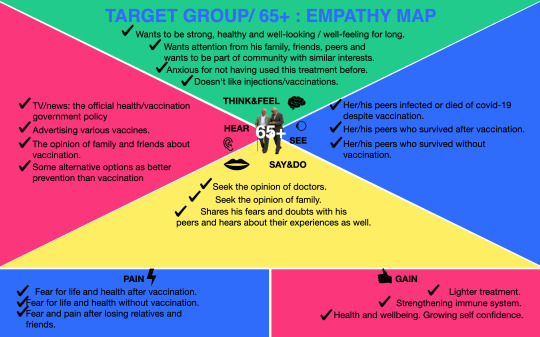
TARGET GROUP/ PEOPLE WITH CO-MORBIDITIES/- BUILD THREE PERSONAS

LILLY
Lilly is 38 years old. She is a home office worker and a single mother taking care of her 11 year old son. He was born with a heart murmur. He is very lively, but gets tired quickly and has to be tested every year to monitor his condition. Lily follows the school newsletter and is always very well informed about the current situation related to Covid-19. She enters various sites and blogs where she and other mothers exchange information. She follows the news and has an application of the local health office on her phone, from where she also receives updates on the development of the disease - ie. she is used to reading a variety of texts from both digital devices and physical media.
She can endure almost any restrictions, but has few funds for current expenses.
TOM
Tom is 45 years old. He is a pharmacist. He owns a small business (several pharmacies). He suffers from asthma. He is responsive, open and always ready to help. He has many friends and business partners. He receives many emails and text messages daily from various suppliers related to his business. His preferred typeface is clean sans, suitable for business correspondence. It operates quickly with all kinds of devices. He is willing to set a reasonable price and stick to it strictly. It does not tolerate limitations and does not make any compromises with quality.
ANA
Ana is a 55-year-old teacher. Most of the day is spent communicating with children and parents. Ana is sensitive, empathetic, often involved in various social causes. She is very strict and likes to check any information from at least 4 sources.In her profession, she wants to be perfect but it exhausts her a lot.At the end of the working day, she feels that she does not have the strength to go home. He suffers from headaches, loss of sleep, lack of sleep and sometimes loses his voice from overwork. Ana is concerned about her health. She regularly consults with her GP. Last week, the doctor recommended tests, from which it became clear that Ana has an acute immune deficiency and quickly becomes infected when in contact with sick/or ill/people. Unfortunately, she cannot avoid these contacts because they are part of the daily routine and duties.
Ana reads handwritten, printed and digital type equally well and does reasonably well with the digital devices and programs that are part of her daily activities. She has an orderly and properly calculated life.
Sometimes she can tolerate some reasonable restrictions (for the sake of some good idea, for example), but in general her monthly finances are distributed accurately and without unnecessary extravagance.
SCENARIOS : LILLY STORYBOARD

Lilly : I got an email from your school. Classes are suspended due to the Covid-19 epidemic. You will have to study remotely from home - you and everyone else.
Her son: No way! I don't want to stay at home and not see my friends! I won't last long like this!

Lilly : I have a solution! "Prevention is better than vaccination" products. They strengthen the body and the immune system.
Her son: What about my heart murmur? It can appear again..
Lilly : No. They have been tested on people with heart disease and the results were negative. So, why don't you try them?
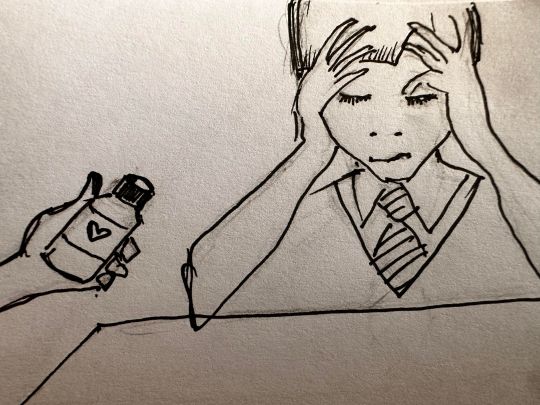
Her son: Umm.. I don't want to. I don't like medicines!
Lilly : C’mon! What medicines are these?! Look at them! They are much more like Haribo candies than medicines: they are transparent and taste like tropical fruits!…
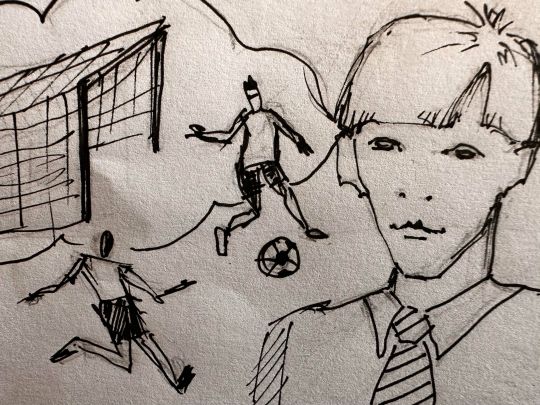
…plus you'll be able to see your friends (if they do it too) because your immune system won't be at risk!
Lilly’s son: Really?! This is interesting. Besides, you know, I think some of them already use them yet.

Lilly : Are they satisfied?
Her son : For now yes. They say they feel more energetic than before. And more cheerful and fresh.
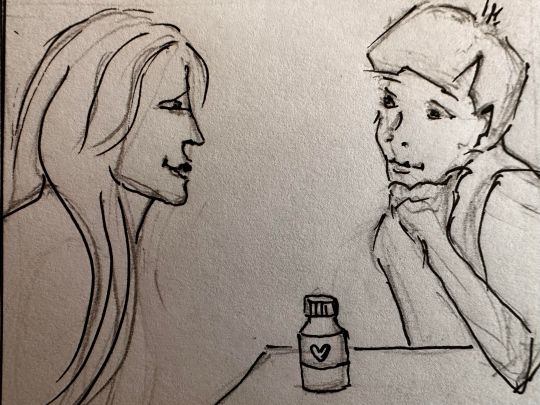
Lilly : Sounds great! You should try them. I need more energy too, so I might as well try them with you. That way, we'll be more protected and able to move forward with our old lifestyle - until school starts again.
SCENARIOS : TOM STORYBOARD

Tom receives the first shipment of the new product "Prevention is better than vaccination" from the distributors. He examines the eye-catching design and notes that it is rare to see such bright colours in pharmacies. His first visual impression is very pleasant indeed.
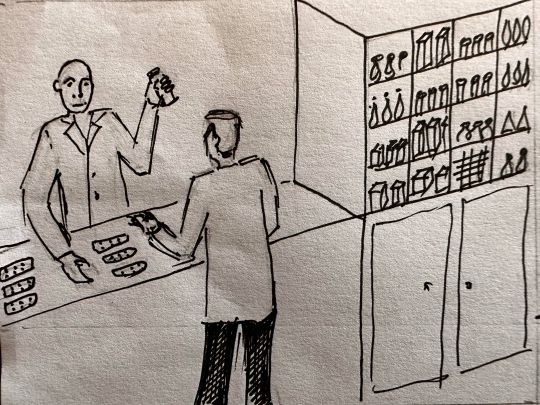
The pharmacist's assistant asks him if he would use these products on himself because he knows that Tom suffers from asthma. Tom tells him that he has carefully studied the contents of the product and its test results and that they fully meet the WHO requirements, so yes, without a doubt, he will use it personally.
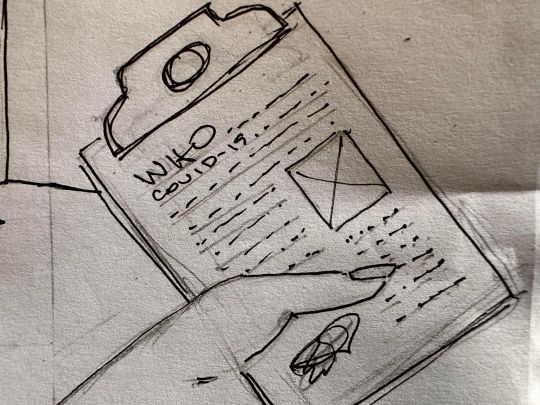
The assistant pharmacist is interested in even more detailed information on the matter and Tom tells him that the product is based on corticosteroids, and since September 2020, the use of systemic corticosteroids has been included in WHO's 'Therapeutics and COVID-19: living guideline' as a strong recommendation for COVID-19 patients requiring oxygen, based on a systematic review and meta-analysis of the results of eight RCTs.
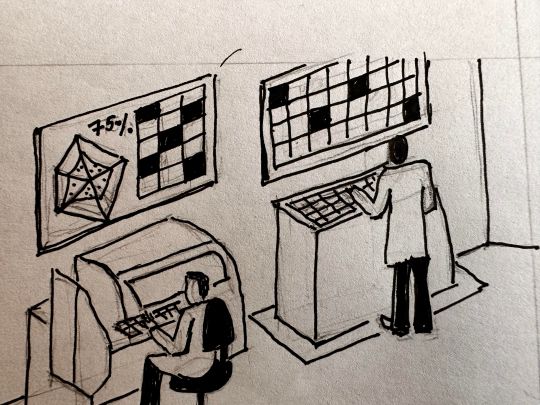
The assistant pharmacist continues to fill in the file with the documentation for the new product and notices that in addition to all the standard questions such as: "Are all the norms of use and standard respected", there is also one additional one: "Is the product environmentally friendly, i.e. Are the materials it is made of easily degradable?” The two men are pleasantly surprised to learn that this is a fact.
SCENARIOS : ANA STORYBOARD
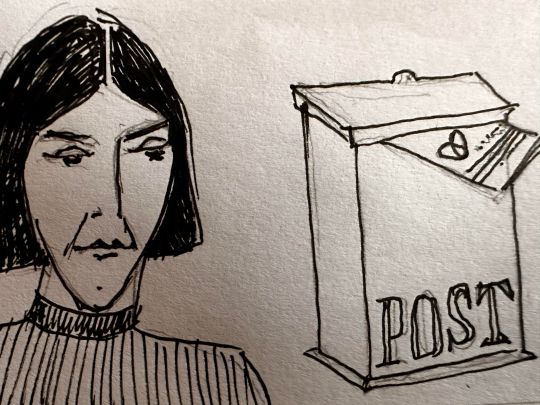
Ana receives an advertising flyer in her mailbox. It is clearly a medical product again, but this time she is attracted by the design layout and interesting graphics and opens the flyer.
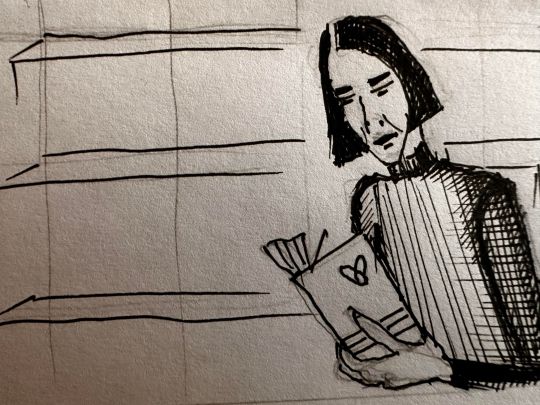
She understands that the offered product is new, preventive against Covid-19 and protects and strengthens the immune system.
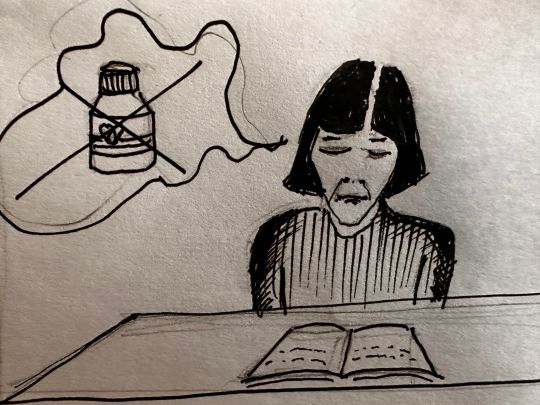
Ana is impressed and thoughtful. She remembered that recently visited her GP and he recommended the same immune boosting product, which she did not buy, however, because she thought it was an unnecessary expense.
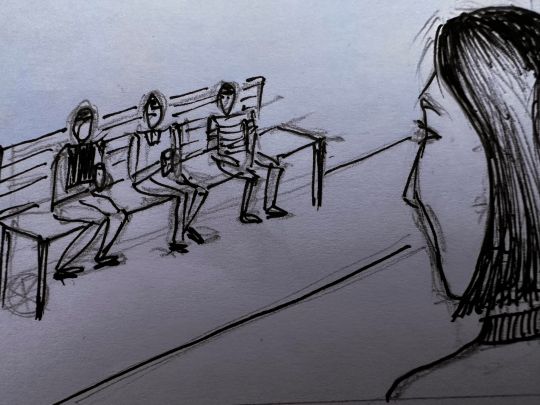
Now she remembers that she has seen other colleagues and even her students using the same product and decides to ask them if they are satisfied.

The next day she talked to colleagues and mothers of her students and received very good feedback from everyone.
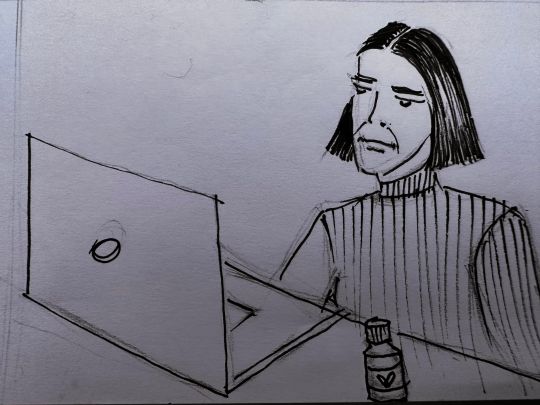
Ana also does some extra research after she gets home. She opens the product's website, where she finds answers to many of her questions. Now she is sure that she will buy the new product.
REQUIREMENTS
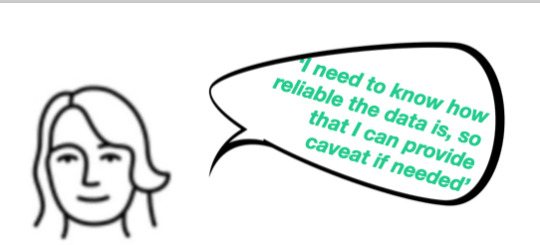
LILLY
DATA NEEDS
I need to learn more about the product/is there a website for this product?
I need to see explicit feedback provided from users.
Is there a promotional advertising campaign and what does it include?
FUNCTIONAL NEEDS
I need a product for prevention against Covid-19 that has no side effects for people with heart problems.
The product must support physical activity without allowing rapid fatigue and exhaustion during physical exertion.The product need to keep me focused and alert.
The product must be suitable for all ages/including adolescents.
QUALITIES
The product must have an attractive commercial appearance ( the ”coolness” factor)
The product must have an a pleasant taste qualities.
CONSTRAINTS
How much do they cost?
What is the deadline for ordering the product?
How fast is the delivery?
How are they delivered?
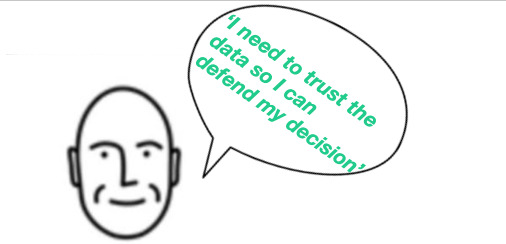
TOM
DATA NEEDS
I need to hear user feedback.
I need a proper professional file with tables and comparison systems to record and compare the final effect of the product (after its use) by users.
FUNCTIONAL NEEDS
The product must be suitable for joint use with other medications taken for all types of co-morbidities.
Are there risk factors and risk groups in/for its use?
Has it been tested for side effects?
QUALITIES
Professional appearance of the product which includes :
COLOURS : bright and prominent;
LOGO: clear about the user’s underlying motivations;
FONT : organised in a clear hierarchy;
TAGLINE : clear message - concise and descriptive.
CONSTRAINTS
Are all WHO regulations, as well as usage norms and standard and accessibility requirements, complied with?
Is the product environmentally friendly? are the materials from which it is made easily degradable?
Are there any contraindications for taking in combination with other medications?
Are there any customs issues that need to be resolved?
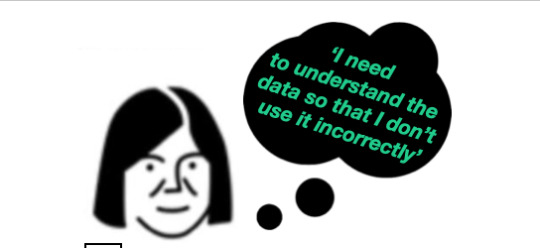
ANA
DATA NEEDS
I need feedback from as many users as possible.
I need of clear organized information located on a site.
I need a larger campaign explanation (including with collateral advertising products).
FUNCTIONAL NEEDS
I need a product to protect me from the Covid-19 virus.
At the same time, I also need a strong product to boost my immune system.
Taking the product should be painless and gentle, (not to cost effort: physical and emotional).
The product should be safe and effective / without side effects (psychological and medical).
QUALITIES
The product must be easily portable (not take up much space in the hand bag).
The product must be resistant to various temperature influences.
The product should be readily available in retail and pharmacy stores.
CONSTRAINTS
How much do they cost?
For how long will the effect of the product last?
What is the delivery time?
How does the delivery happen?
SUMMARY & CONCLUSION ON THIS STAGE
1/ From the prepared Empathy Map it became clear that we should place empathy as the main key element in the relationship with our consumer segment (65+).
2/ Personas helped us to understand the needs of the users in depth, instead of offering them ready-made solutions. In this sense, we find their vitality and connection with real life very important. They present things from another angle (in fact, from many more angles), and this gives the opportunity to explore new areas that we could not think of. We tried think of the final product as an arithmetic average of several factors: what's good for me may not be good for you and vice versa.. The goal were to find the balance between all of them, and we think that Personas research provide us this great opportunity.
ANALOGIES
1/SUN
Yayoi Kusama, 2009, The Sun Is Loved by Everybody, Acrylic on canvas, 162 x 162 cm / 63 3/4 x 63 3/4 in

Source: Victoria Miro Gallery https://www.victoria-miro.com/exhibitions/427/
2/BLOOD SPOT
Fresh idea : using bold and bright colours in the layout of designs corresponding to the idea that we have a strong alternative solution in the fight against the virus.

Source : i-net
3/UNDER ARREST
I thought that when it came to the design layout it was a good idea to put the virus BEHIND BARS as a metaphor for a global idea behind which ALL people stand united.
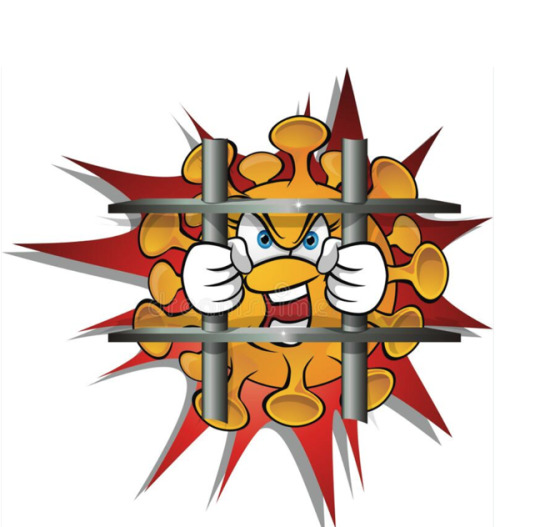
Poster Coronavirus behind bars. Source : i-net
MOODBOARDS
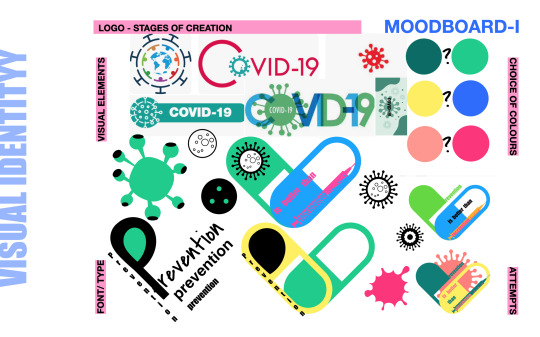



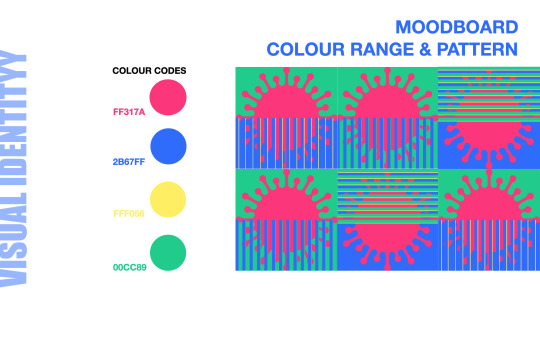
TBC...
0 notes
Text
What to expect on 12th September? (NEET 2021)
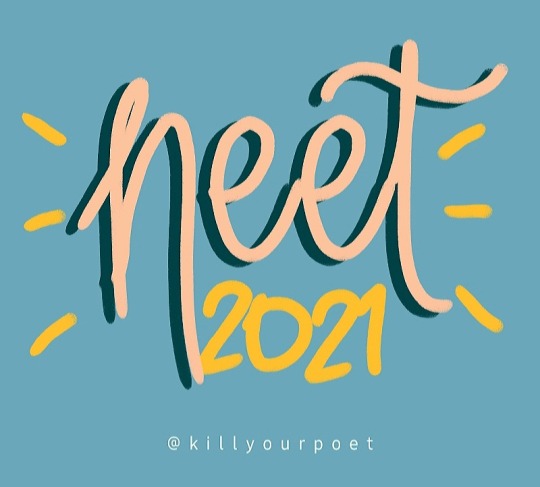
Hey everybody, if you're appearing for the NEET 2021 exam this Sunday (12th September 2021), I've compiled a list of some important things you might want to keep in mind.
The National Entrance-cum-Eligibility Test (NEET) is the national medical entrance exam in India. It is the only gateway into all medical schools in the country. It is conducted annually around May, but due to the COVID-19 pandemic, it has been postponed to September in 2020 and 2021. This year, 1.6 million students will be appearing for the exam.
[This list is by no means exhaustive, I only speak from my experience and the advice of friends and teachers. Feel free to add anything I might have missed out!]
How to make the most of this last week before the exam?
Do not experiment with anything new. Doing so might disturb the delicate subconscious programming that your brain has undergone through all these months of studying and practicing. By experimentation, I mean anything other than the routine that you've built while solving question papers. If you're used to starting with Biology, then moving on to Chemistry and ending with Physics, do not attempt to spice up your 3 hours by indulging in adventure sports like staring with Physics first. This will end in disaster.
Look through all the important things at least once. I know, I know. That's 10 fat books in one week. But remember that this is not the first time you're reading it. Skim. When you catch on something you're not too familiar with, only then should you actually read.
NCERT = holy book. Idk if you've heard but actually reading the books prescribed by the examining body will most definitely give you an edge over someone who hasn't. I cannot stress this enough. They will LITERALLY take out things from the NCERT and slap that onto the paper and call it a day. Remember that the examiners have to cater to those who do not have access to / cannot afford any sort of study material other than the NCERT. While study guides can help you interpret the NCERT, they cannot substitute it.
Have a plan. It doesn't have to be grand or very detailed. Just clearly defining what you intend to do with your time will suffice.
Set your internal clock. Practice at least one exam a day from 2:00 pm to 5:00 pm IST because that's when the actual exam is held. You want to maximize concentration and attention at that time of the day.
Practice answering on OMR sheets. This year, because of COVID, all your mock tests were probably online. In that case, take a few hours to practice exams on the OMR. The time management on that is very different from online exams.
Eat well. Remember to drink plenty of water. Try to eat things that have come directly from the earth and onto your plate. I know it's hard and the anxiety is enough to make you under eat / overeat but messing up because of something as trivial as meal choices would kinda suck tbh. Please do not eat an entire large pizza all by yourself the day before the exam. Stay the hell away from carbonated drinks for at least this one week. I am begging you. You might not notice but they seriously mess with your head. Whole foods are the way 2 go babes
What to expect on the day of the examination?
The NTA will be releasing the admit cards 3 days before the exam. Your exam centre and time slot to show up will be mentioned on it. This is most probably done to (a) prevent unfair practices and (b) give students enough time to visit the centre.
Know your exam centre beforehand. If you're living with your parents who will be driving you to the centre, you could even ask them to visit the centre the day before just so you don't waste time searching for the centre on the day of the exam. Believe me, a lot of people have lost an entire year because of this.
The peeing. Listen. They'll allow you to go to the washroom in the middle of the exam, of course. But if you ask me, try to avoid getting up to pee. Try to time your water such that you wouldn't have to pee during the exam. Please make sure you pee right before the exam. Idk about you but the exam pee has always been a real problem for me and together with my anxiety, it has ruined a lot of exams. It also breaks your momentum and you'll have to re-orient yourself when you get back. NEET isn't like JEE - it's not about how smart you are, it's about how efficient and accurate you are, because that's what a doctor needs to be.
Eat a light, nutritious meal. Something that'll give you energy but isn't too hard to digest. You don't want to nod off during the exam. That would be highly inconvenient.
Be on time. If you don't turn up on time, no matter what, you will not be allowed inside. Again, a lot of people I know have messed up here.
Security check. You will be checked before entering the centre. Do not wear anything dark (black, dark blue, dark brown etc). Do not wear jeans or any tight clothes. All your clothes must fit loosely and they must be light. This is done to prevent people from sneaking in transmission devices. If you wear long sleeves, you will be asked to cut them then and there. Do not wear heavily embroidered clothes. Do not have any metal on you. Take off all jewelry at home. If you wear a bra, remember to wear a sports bra or one that doesn't have any metal hooks. You can't wear shoes - your feet must be visible. Wear flip-flops or thin sandals. People have been made to take off their shoes before and write the exam barefoot. They will provide a fresh mask at the centre and gloves. This time, due to COVID-19 restrictions, they will not be doing body pat frisking, they will not be checking your ears and mouth. There will be bluetooth jammers in the exam hall to prevent any transmissions and the entire exam will be videographed.
Stay calm. I know it looks like a high security airport check and you'll probably be scanned several times and subjected to several layers of screening but remember - this is done so that nobody has an unfair advantage over you. India has incredibly clever people, but sometimes for the wrong reasons.
While writing the exam:
Don't panic. If you see a question that looks hard do! not! panic! because we always know more than we think we do!! Wait a second, linger for a moment and the answer should come to you.
Know what to leave. If you aren't aiming to get a perfect 720/720 then you should leave time consuming questions and try to do as many questions you know as possible. If you are aiming for a perfect score, do the same but remember that you need to leave sufficient time at the end to come back to them.
Repeat. Remember - this is just another one of the hundreds of exams you've done. Follow the same strategy you're used to. Most definitely DO NOT experiment in the final exam.
Lastly, always remember that ur super cool and smart and amazing and one mistake won't define you. Your worth is inherent and not determined by an exam. Your timeline is very different from someone else's. This is not a race, it's about doing things right. Your physical and mental health are more important than anything else in life. Do your best today and try again tomorrow. And then the day after that.
If you have any questions, feel free to message me :))
Best of luck!!
— Svante
#neetpreparation#neet 2021#neetaspirants#nta neet#neet2022#neetcoaching#neetbiology#neetphysics#neet chemistry#neetug#neet#national testing agency#exam#cbse#nta#studyblr#india#neet latest news#neet pg#jee main 2021#jee advanced 2021#jee main#neet ug 2021#neet aspirant#medicine#medblr#med school#medical school#med student#hey saher
24 notes
·
View notes
Link
In late March, when Robert and Michelle King convened the writers room for their supernatural drama Evil, they plotted out a second season premiere in a haunted New York City subway station.
Now, more than two months later, as the novel coronavirus continues to ravage so much of the world, the idea has been scrapped at the behest of their line producer, who warned that filming permits would be hard, if not impossible, to come by. When the CBS series does return, the season opener will explore the spiritual consciousness of its characters instead, with a storyline devoted to the "God helmet" and its virtual-reality-meets-peyote-style impact. It's a plot perfectly suited for a post-pandemic world, explains Robert King, because it relies heavily on visual effects. "You have to look at scope in a different way," he says, in this case referencing the scope of the brain rather than scope of a subway.
In virtual rooms all over Hollywood, writers like the Kings are being asked to rethink what could be feasible once production resumes. Many are waiting to actually tweak their scripts — "I don't want to have to rewrite everything six times while the guidelines change," says Shameless' John Wells — while others are already avoiding or scrubbing crowds, hugs and handshakes. Sex scenes and fight scenes will need to be carefully considered, too, and in some cases reconsidered as storytellers along with their line producers and studio bosses navigate an unknown future.
"What we're telling our writers is 'Don't be dumb,' " says one studio executive, who suggests that an elaborate crowd scene with dozens of extras would surely qualify. "We're not going to be able to shoot it, so don't write it."
Regardless of directives, which vary by studio, more than a dozen producers who spoke with THR say their anxiety lies largely in the uncertainty. "It's very hard when you don't know what the future looks like," says Marta Kauffman, showrunner of Netflix's Grace and Frankie, whose situation is made more complicated by the fact that the youngest of her four leads is 79 years old. She has yet to go back into her scripts and start making the necessary changes, but that's coming, and she's dreading it. "We had scenes at our assisted living facility with a crowd, and, well, we can't do that anymore. And we know we certainly won't be doing lots of kissing with elderly people, but it may have to go beyond that."
Though Kenya Barris' actors are several decades younger than Kauffman's, he's having trouble wrapping his head around how he'll make his Freeform series Grown-ish, which takes place almost entirely on a college campus. "It's literally about a place where people gather," he says, "and you can only do so many [contained] bottle episodes before it starts to lose the tone and feeling of what the show is." Meanwhile, Mythic Quest's Rob McElhenney was smack in the middle of shooting a scene set at the E3 gaming conference when production shut down. "There were literally thousands of people in the audience, and that's not going to happen anytime soon," he says. "So I'm going to have to rewrite it and reshoot it."
The days of doing a dozen extra takes are likely over, laments another producer, and shooting long just to have it, too. In fact, one executive suggests scripts could soon be five or six pages shorter ultimately, to make room in a show's budget for pricey protocols like crew-wide testing. There have been rumblings of putting line producers into writers rooms as well, though writers with any modicum of power are likely to resist additional infringement on the creative process. ("It's a terrible idea unless you have an irresponsible showrunner," says Kauffman.)
Writers will also be asked to lean on fewer characters along with special effects to provide scale. As one producer explains, if a pre-virus scene was set at a backyard birthday party full of children, the post-virus one will have two or three characters sitting around a kitchen table talking about the party — and any flashes to it would largely be CGI.
"The technology that brought you dragons and exploding people is the same technology that will be bringing you ordinary crowd scenes on shows you wouldn't expect [to use] visual effects," says You's Sera Gamble, who suggests CGI will be of little help on her intimate scenes, which she isn't interested in writing out. "We're not at the place in 2020 where we can talk about using visual effects to fake a kiss between [You stars] Penn Badgley and Victoria Pedretti — that's a separate issue and one we have to figure it out."
In recent weeks, writers such as Gamble have been looking abroad to see and study how productions elsewhere are grappling with the same challenges. All eyes are on Australia's long-running soap Neighbours, which announced it's resuming without extras or physical contact between castmembers. The show's producers have said they'll cut away before a kiss or punch, relying on the audience's imagination to do the rest. It's a strategy that some will consider stateside, too, particularly when it comes to intimacy.
Other approaches being discussed involve facilitating separate shoots, which can then be pieced together in post, and quarantining participating talent for 14 days, with testing done regularly, before shooting the scene in full. The actors involved with the latter would have to be OK with that plan, of course. "And if they're not, you're fucked," says one executive, "because you can't force an actor to do something that they're not comfortable with." At least two more predict those kinds of conversations about comfort levels — both general and specific — will start to happen with No. 1's on every call sheet in the coming weeks, if they haven't begun already. And the responses are expected to vary, particularly among the older and more vulnerable set. Regardless of how many safety measures are put in place, there will be some who simply won't feel comfortable and, as one network head warns, some shows could go away as a result.
For the time being, writers seem to be relying on their own gut to guide them. Barris, for instance, won't be writing in handshakes anytime soon, since he cringes every time he sees one on TV now. "I'd be less offended if you came up and cupped my girl's boob than shook her hand," he jokes. Curb Your Enthusiasm boss Jeff Schaffer agrees: "The handshake is gone," he says, "it's the VHS of salutations." And McElhenney's partner, Megan Ganz, reveals she'll be editing out a pre-pandemic line in which Mythic Quest's lead characters are asked, in response to their slacking, "What have you been doing for the past six months?" because it no longer feels right.
Studio and network execs must rethink their choices, too: Some are looking to their own libraries for contained shows that might be worth rebooting, while others are exploring potential series add-ons where only a couple of characters are needed. Working in their collective favor is an overwhelming desire among most casts and crews to get back to work. Says Black-ish showrunner Courtney Lilly, "If [our show] ends up being a one-act play for 21 minutes between two characters so that people can work and America can see characters they like onscreen doing something that isn't a repeat, we're going to find a way to do it."
It's a sentiment shared by many — just not all. Robert King falls among the skeptics: "Oh my God, network shows can't be made more boring," he says, horrified by the notion of having to scale Evil or The Good Fight down to a series of two- or three-character scenes. "You need to find ways that are visually interesting and inspired, and if you start limiting things, it'll just be, 'Why do I want to watch that? I'll wait for the newest Netflix thing that's shot in Hungary or somewhere where they will let people sit on each other's laps.' I just think everybody needs to calm the fuck down and not write with the idea of limitations in mind — or [at least] not as the guiding force."
18 notes
·
View notes
Text
Talked with my psych NP today and changed some of my meds up.
I'm apprehensive because I haven't made serious changes to my meds in about 2 years, but my current regimen just wasn’t working.
The great thing about working at a psychiatric facility is that my EAP (employee assistance program; a bundle of services offered to employees for free) includes free therapy and free psychiatric consults. So hopefully I can get established with a decent psychiatrist and get this mess completely figured out.
Changes:
Venlafaxine XR is going from 225 mg to 300 mg
Wellbutrin XL 300 mg is changing to Wellbutrin SR 200 mg
Vyvanse 40 mg is going to Vyvanse 30 mg
Trazodone 100 mg PRN insomnia is going to 100-200 mg PRN
Temazepam 15 mg PRN super insomnia isn't changing
Latuda 40 mg isn't changing, but I might start actually taking it again. Concerns: weight gain, metabolic issues, EPS, TD, brain fog. It was better than Abilfy in terms of weight gain and metabolic issues, but not completely benign. Risk of TD increases with long term use, though 40 mg is a low dose. I would like to find an endocrinologist to consult.
I generally think antipsychotics are overprescribed, especially when you consider how much money drug companies are raking in with the new ones. My Latuda is $1400 per month without insurance. I'm diabetic, I don't need any help with increasing insulin resistance and cholesterol. But, it helps me not do impulsive shit. And might help the COVID hallucinations?
I want to get off Wellbutrin because it doesn't help and the side effects are…unpleasant. But every time I try to decrease my dose, I get withdrawal symptoms. Still, my long term goal is to DC that med.
I'm hoping to stick with Effexor bc trying to stop that med is hell. I've had success with it for almost 3 years, so I'm hoping increasing the dose can give it some more longevity.
I'm thinking of giving mirtazepine another shot. There's some evidence that combining it with Effexor can be effective. But I really, really hated it when I took it before. I took 2 doses and couldn't keep going. It made me sleep for 40 hours over 2 days and eat everything in the kitchen. I can't stand feeling that kind of heavy, drugged feeling. It makes me extremely anxious. If I do give it a shot, maybe temporarily increase the Vyvanse? Idk.
I'm going to be working 2nd shift once I'm done with training, so hopefully my insomnia will get better when I’m not trying to put my ADHD brain to bed 6 hours before it wants to be asleep.
I love my psych NP because she really values my input and listens to my suggestions to the point that I'm essentially designing my own treatment regimen. But being 300 miles away is an issue.
I also need to get established with a primary care physician here. I really need a full physical to figure out wtf is going on with my pos body post-COVID. I'm going to need new lung imaging and probably new pulmonary function tests. I need at head CT at least and ideally an MRI. I'm pretty convinced I had a stroke back in April. Seriously. I'm also having brain fog and memory loss that's way beyond anything I've ever experienced with my depression or ADHD. And loss of coordination. I was playing the piano tonight and…ugh. I just couldn't get my hands to do the Thing. So I have some concerns on that front.
COVID caused peripheral nerve damage in my hands, so now my palms feel permanently scalded. My NP agreed to increase my gabapentin but won't do so until I send my positive COVID results. Weirdly, the place I had it done closed forever since I was there? Wtf.
Then there's these weird fucking allergic reactions I can't figure out. I've never had serious allergy issues in my life. I have a very mild mold allergy that I control with prn Zyrtec. I'm allergic to a specific kind of cephalosporin antibiotic that no one even used anymore. But in the last 3 months, I've started having these anaphylactic reactions to…nothing? I can't identify a trigger. I haven't added anything new medication wise, hygiene product wise, or food wise to my life. I thought maybe it was something in my house up north, but we moved and the reactions persisted.
It starts with my tongue tingling and swelling. Then I start getting itchy, tingling palms and feet. Then I get this feeling like bugs under my skin on my arms and legs. Then I break out in hives and my skin just…starts to slough off. Breathing gets harder. My heart rate goes up, my blood pressure goes down. When I was in the ER for this crap, my d-dimer was elevated as well. Treatment is Benadryl+ Zyrtec+prednisone+famotidine. Then epinephrine if that doesn't work.
This is scary as shit because I am already Not a healthy person. I'm about 3 bad days away from having a stroke WITHOUT my body creating extra clotting factors. My heart rate is about 100 BPM WITH A BETA BLOCKER. I have an irregular heartbeat. Diabetes. Jacked up lungs. I don't need any help with my early death.
So, yeah. I'm alive for the moment but I really need to see like 6 doctors.
Oh lmao, I'm not eligible for my employers health insurance because I have a pre existing condition…or 10. God bless Fuhrer Trump.
6 notes
·
View notes
Text
I'm gonna rant about this on here
Cause I don't know what to think
I've always had bipolar, always. So far I haven't found the greatest treatment for it. Antidepressants at least take the edge off the anxiety part, but don't really help a lot overall. Anyway, I've always been a person to push myself to and past my limits. "If your muscles aren't sore, you aren't working hard enough". I've always had a really hard time working jobs, it never lasts long. I'm unemployed at the moment but Ive had warehouse and assembly line jobs before.
Anyway. I just learned that bipolar does count as a disability (in the states) and I've never been great at managing my bipolar.
But (as with everything) I'm torn in two directions. I wanna just call myself disabled, it would ease my anxiety. I'm unable to work bc my roommate is using my car for work and has a crazy schedule, and I live in the middle of nowhere where there's no work. So Im waiting it out til my roommate and I get things more settled. Calling my bipolar a disability, even just in my own mind, would make me feel better.
But at the same time it feels like giving up, or giving in. I don't want to be called lazy, or a mooch, or anything like that. I've always been one to push myself hard
But that does come with consequences. In assembly line I wanted to be the fastest builder on our shift. After a year and a half I got there, but now forever if I use my left arm too much I get nerve pain from the carpel tunnel I almost sorta got. So I know I have to be careful, I'm not great at minding my own limits.
Which is another reason working is difficult. I end up pushing too hard, mentally and physically. I really see why bipolar is a disability. Just the amount of times I've gotten hurt at work from being work-obsessed.
I get so work-obsessed. Dude. I get the attitude that I have to be the best and end up thinking about it at almost all times. It's almost unhealthy, now that I think about it like that. It's always compulsive. I start off not caring and wind up being so obsessed that I would lie in bed at night thinking of how to be better at my job.
If you made it this far you might as well know, I also had freaking long covid for a year. I had the terrible part, was scared I'd stop breathing in my sleep and die so I didn't sleep, and then spent months unable to get out of bed. I'm just tired now, dude. I'm just so tired. I survived freaking covid and I'm just so tired.
I wanna push myself as hard as I can, but I might push myself off a cliff. I already got nerve damage and some broken bones from reckless manic-working. But if I try to call myself disabled because of my bipolar I'm always afraid everyone I know will try to call bs on me, saying they've worked with me and obviously I'm a good worker so how dare I call myself disabled and ruin the name and reputation of actual disabled people.
I get so paranoid. When I was sick with covid no one believed me except my roommate. I was too busy pushing myself at work to notice how I felt and didn't know I was sick until I was already past the point where the tests could detect it. (This was in 2020, pre-vaccine. I've def had my vaccine now) but I didn't get tested until it was too late. Then all I could hear from ppl was 'when are you going back to work'. Even my doctor didn't like that I wasn't working even though I had long-covid, which drs were sorta just learning about at the same time I was sick.
But ever since then, I just feel like I have to be the normal healthy person ppl think of me as, but I don't feel normal or healthy.
I may end up pushing myself into another warehouse job again where I'll be miserable, barely surviving, and hating myself but at least I'll be a productive member of society. Until I eventually lose that job because of my bipolar. Then it just starts again. I really truly feel this disabled thing is up my alley but I have this in-bred compulsion to ignore it and not allow myself to think about it.
As with almost everything I feel two conflicting things, both just as strong as the other.
#blog#personal#disability#bipolar#mental health#im unemployed#woo#financially im ok#i just feel like a mooch#and a terrible person#i wish i had any kind of support system#ive got my roomie and thats it#i got so much weird stuff wrong with me#not horrible things just super inconvenient#like mondors disease#that was a weird one
0 notes
Text
0 notes
Text
0 notes
Text
0 notes
Text
I have completed my full downward slide into depression. It's been a slow decline for months—not wanting to get out of bed, dreading the start of each new day, not eating more than once a day, feeling insecure and worthless—but now I'm well and truly Stuck.
Three weeks ago I had surgery to remove half my thyroid. The operation itself went very well, and it was honestly a relief to not be expected to be a functioning, productive person for a while. Still, I've never had general anesthesia before, and recovery was a bitch for a good week afterward.
I stayed with my parents and brother during my recovery, and it was WONDERFUL. Like, I had almost forgotten what truly amazing people my family members are, and how incredible it is to live with people you love. Where the place you live actually feels like a home, instead of the-place-I-shower-and-sleep-and-keep-my-stuff-in. Where I felt safe and cared for, instead of isolated and threatened.
Then my leave of absence from work came to an end, so my parents drove me back to what is now my "home" city on a Sunday, for me to start work on Monday. And...Sunday night I started running a high temp, coughing, etc.
Spoilers: I don't have COVID!!! The test was negative, thank God. But, since it took almost a week to get the results, I stayed in my house out of fear of being infectious (in addition to, you know, Feeling Awful). But since my test was negative, my workplace will not give me extra paid sick leave for when I was quarantining, so now I'm a week and a half into having no paycheck. I'll probably make about $200 next pay period.
So, this has been 3 weeks of being out of commission, with plenty of time to sit and do nothing and ponder my existence. Add in feeling like shit physically, already having a slow slide into depression for the last couple of months before this, and being physically isolated for the last week and a half...and, yeah. You could not concoct a better recipe for depression.
The social isolation has been the hardest part tbh. Last week I went through 3 or 4 days in a row where I did not speak a single word out loud to anyone. It was just...awful. I can't begin to describe how sharp the pain of this loneliness is.
And the thing is, with the physical illness, at least that's a valid reason for most people. If I tell them "oh I'm not eating much and I'm exhausted all the time because I'm recovering from surgery" they're like "oh yeah that makes total sense." If I tell them "I don't want to go outside or move from my bed because I might have the virus that has caused a global pandemic" everyone's like "oh shit ok yeah stay at home, hope you feel better soon!" But if I tell them the complete truth, that "I spent the last day crying on and off for 18 hours straight, feeling like I'm worthless and don't deserve to be here on this planet taking up space, not wanting to eat or move, and slept for at least 16 hours for the last 3 days before that, because I'm depressed"...people will be like "well just do the things you usually do and power through it!"
Like...no. I've been powering through it and doing what I usually do, for months now. A month ago, part of me was quietly (naively, stupidly) hoping I would get COVID, just so I could have an excuse to have a break from the rest of my life and just not have to handle the weight of the world for a while. It's a stupid horrible thing to think, I know. But that just goes to show how desperate I've been—and still am now—for a fucking BREAK.
I'm not suicidal right now. I know those thoughts aren't helpful. It hasn't gotten to that point. I have thoughts about I wish I wasn't here anymore, but nothing more than the vague and passive thought. It's more like, I wish I could leave this shitty house, this job I dread going to, this lonely miserable existence where my family and the few friends I have live so far away, and just go to a retreat. A place where I'm safe, and loved, and I can just rest for a while and recover emotionally, while I figure out what the hell I need to do next.
Tomorrow I'm supposed to go back to work. It'll still be working from home, doing remote sessions with a coworker's group. I have no fucking idea what I'm doing, or whether I'll even have the energy to do this for 4 hours, then write up notes for the next 2-3 hours. I'm exhausted just thinking about doing the first 45 minutes of it.
I don't know what to tell my boss, either. Since I work in a mental health setting, you'd think they'd be more understanding about how emotional health difficulties can impact your functioning just as physical health difficulties can? But they might also say that if I can't do my job, I'll be fired because they can't afford to keep my on the payroll if I'm not working. I have no idea how to ask for help in this situation. And my job is serving an important purpose (giving me a steady income + counseling hours toward my independent licensure). I can't afford to lose the job, but I don't know if I can do the job right now.
I'm just so exhausted. I'm drained. I feel like a piece of shit and a burden to my workplace, my friends, and my family. I just need to rest and figure out a way out of this.
HOW THE FUCK AM I SUPPOSED TO DO THIS
0 notes
Text
When will Canada pass the peak of COVID-19? Even the experts don't know
New Post has been published on https://apzweb.com/when-will-canada-pass-the-peak-of-covid-19-even-the-experts-dont-know/
When will Canada pass the peak of COVID-19? Even the experts don't know
TORONTO — As millions of Canadians spend their days at home, avoiding getting too close to anyone outside their households, one question rises above all: When will this be over?
Ashleigh Tuite is about as well-positioned as anyone to know the answer to that question. She’s an expert in developing mathematical models to forecast the spread of infectious diseases. Not only that, she’s part of a team at the University of Toronto that has been given federal money to specifically model the COVID-19 pandemic.
But when it comes to what may happen next in Canada, Tuite has no special insight.
“‘I don’t know’ is the honest answer,” she told CTVNews.ca Thursday via telephone.
“It’s a little bit too early, at least here and with the data we have, to be able to do the forecasting work that I think there’s a huge appetite for.”
Even knowing exactly how far Canada is into its COVID-19 outbreak is difficult. The number of cases in Canada rose by 42 per cent on Monday, 34 per cent on Tuesday and 22 per cent on Wednesday — but there are so many factors at play that it is impossible to reach any useful conclusions on whether the country is flattening its curve.
Testing activity is ramping up, but not at the same rate in every province, and not every part of the country is prioritizing the same cases for testing. There’s also inequity in processing backlogs — and that there are backlogs at all means today’s new cases involve people who first contracted the virus several days ago.
It takes even longer for the effects of closures, movement restrictions and other government actions to show up in the data. Because it is generally believed that the virus has an incubation period of up to two weeks, experts say it is only safe to assume that one day’s case number represents the results of actions taken 14 or more days earlier.
All of that results in a constant game of catch-up for doctors looking to treat patients, health authorities looking to implement the necessary measures to keep COVID-19 patients from flooding into hospital beds, and anyone looking to simply keep up with what’s happening.
“We don’t exactly know where we are on the epidemic curve, and we don’t exactly know where we were when we started having our strong public health response,” Tuite said.
To try to close that gap, some researchers look at the progression of the virus in other countries and try to adjust those experiences for the Canadian context. One team from York University in Toronto attempted to project the spread of COVID-19 in Canada based on the example of Italy, where more than 8,000 deaths have been recorded.
NOT THE ‘NEXT ITALY’
Italy is currently one of the world’s grimmest examples of the toll COVID-19 can take. Nearly one in 10 of Italy’s 80,000 known cases are health workers, and it is believed the real number of the infected is significantly higher, as the country has prioritized testing only those most likely to have the virus.
The York researchers found that Canada’s COVID-19 curve up to March 22 appeared similar to Italy’s about three weeks earlier. At that point, Italy was starting a mass quarantine of part of the country, while life still continued relatively normally in other regions for a few days. The full lockdown of the country was still a week away.
Because Canada had already cracked down on public gatherings before March 22, the researchers concluded that “Canada will not become the ‘next Italy,'” but warned of a worst-case scenario in which there would be 15,000 confirmed cases of COVID-19 in Canada by March 31.
Even that scenario no longer appears to be a significant risk, postdoctoral fellow Dr. Nicola Luigi Bragazzi told CTVNews.ca on Thursday, because of the stricter measures Canada has taken since March 22, including requiring anyone entering the country to quarantine for 14 days.
“These measures are extremely useful and helpful,” he said via telephone.
Other scenarios modelled by the York team, involving various forms of government action, project caseloads far below 15,000 by March 31.
But when it comes to one of the country’s main goals right now — keeping the outbreak from overwhelming the health-care system — does the total number of cases even matter?
Tuite doesn’t think so. She says the number of deaths is a better indicator, albeit one with its own problems. COVID-19 deaths typically occur three to four weeks after infection, meaning projections based on deaths have a lag time even longer than what it takes for movement restrictions to be reflected in the data.
What she and many other researchers would like to see is data from each province on COVID-19-related hospitalizations — something most provinces are not yet routinely including in their updates. That would allow for a greater focus on only the most severe cases of the disease, while also making it easier to forecast how demand for hospital beds will change over time.
“If we’re able to monitor that, that will give us a very good sense of where we are in the epidemic,” Tuite said.
COMBATING COMPLACENCY
The models, projections and experts may have a hard time saying exactly what will happen with any confidence, but they all agree on one thing: the numbers will continue to rise for weeks.
Consistent large increases would be an obvious problem, because the health system would not be able to manage them for long. Consistent small increases could present a challenge of their own, as Canadians may take them as a sign that the measures enacted by the government were an overreaction.
This is another reason why Tuite wants to see more detailed communication from governments about how cases are being managed — because that information can then be used to help inform the public about the reality of the situation.
“If you’re asking people to buy into this, I think there needs to be a way to communicate that what we’re doing is having an impact,” she said.
Tuite pointed to the sudden escalation of the COVID-19 situation in New York City as an example of what can happen when public buy-in comes too late, suggesting that Canada could be in “a very different place” had government action and recommendations for physical distancing come a week or two later.
Bragazzi, too, cautioned that Canadians should not get complacent, noting that the effects of actions taken today will not be reflected in statistics for weeks. He suggested that Canada look to China, South Korea and Italy as examples of three approaches to fighting the virus with different outcomes.
“The critical time to act is now. Canada can benefit from and capitalize on the lessons of other countries,” he said.
There are signs that the government is trying to prepare Canadians for a longer life under not-quite-lockdown than they may have expected when the measures were first announced.
Asked at a press conference Wednesday about how long it might take the country to start returning to normal, Dr. Howard Njoo, the country’s deputy chief public health officer, responded that “if you look at the science and the evidence … it’s not days and weeks, but certainly months that this pandemic will endure.”
Source link
0 notes